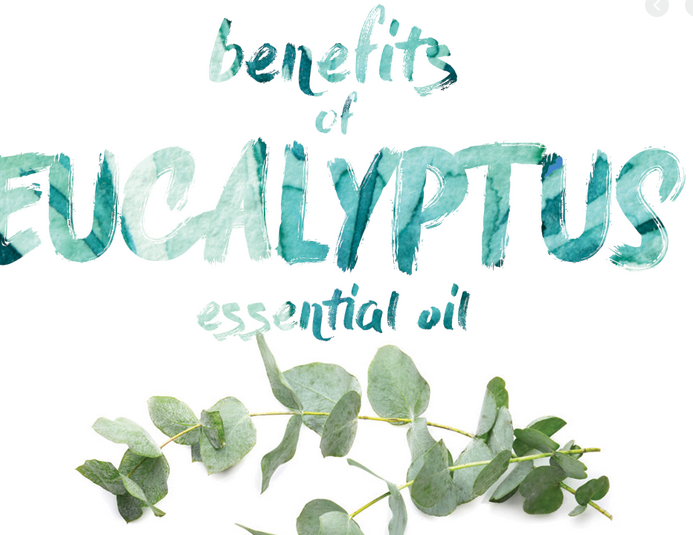Eucalyptus oil is among the most versatile of all essential oils. Several species of Eucalyptus have been used to produce Eucalyptus oil, with Eucalyptus globulus being the most popular. Eucalyptus belongs to the Myrtaceae family. Australian Aborigines have known about the health benefits of Eucalyptus for centuries. Aborigines bruised the leaves and mixed them with water to treat colds and fevers. The leaves of the eucalyptus tree, when dried, yield an oil with an extensive catalog of health benefits. Used to make medicines, lotions, perfumes, cosmetics, and several other products, eucalyptus essential oil is one of the world’s most useful plants.
Whether you are struggling with an ailment, want to make your hair more moist and shiny, wish to soften your skin, like to cook, or create your products, eucalyptus oil can help you in some way. However, we have only just scratched the surface of how helpful this essential oil is.
What is Eucalyptus Essential Oil used for?
The eucalyptus leaf is primarily used for several health problems. A common ingredient in natural remedies, the uses of this plant span the full range. Here are just a few of the diseases, ailments, and health problems for which this essential oil is used to treat, soothe and improve:
Infections: As an anti-inflammatory, Eucalyptus can work wonders for nasty conditions. It is also an analgesic (pain reliever), an antibacterial, anti-infective, which means it has everything to be an effective medicine for various types of infections that can plague the body. Of course, eucalyptus oil should never be ingested or applied to the skin in absolute form. It should be diluted until it is safe. However, most medications will do this for you.
Stomach problems: As a pain reliever, diluted eucalyptus oil can soothe stomach upset and acid stomachs, as well as the pain they can cause.
Coughs: Eucalyptus oil is known to loosen stuck coughs and remove mucus after a cold. As an antiviral agent, it works well against colds and flu.
Infections and respiratory problems: The leaf and oil are also used to treat respiratory diseases, asthma, pulmonary tuberculosis, and whooping cough. It can also be used preventively to keep the sinuses healthy.
Acne: Eucalyptus oil, a natural astringent, is also used to treat acne and oily skin.
Burns: The pure, cooling effect of eucalyptus oil helps soothe burns’ pain and promote healing of wounds.
Aches and inflammation: For aching muscles, joint pain, and arthritis, eucalyptus oil is a lifesaver. Its anti-inflammatory and analgesic properties help soothe and reduce pain. Added to a bath, it can soothe aching muscles and melt away stress, stiffness, and sensitivity.
Fever: The analgesic properties in eucalyptus oil also work well for fevers and the symptoms they bring. Body aches, headaches, weakness, and sensitivity can be reduced and improved with this essential oil.
How to use Eucalyptus essential oil
Eucalyptus essential oil can be used in a variety of ways. Depending on what you are using it for, the way you use it may be different.
One of the main ways it is used in the bath is in the tub as a shower gel or soap. This means that the oil is already well diluted and ready for immediate use. However, you can also dilute the pure oil yourself with sweet almond oil or something similar and add 10 to 14 drops directly to your warm bath.
Diffuser: An aromatherapy diffuser fills the air in a room with Eucalyptus and is a beautiful way to get its therapeutic value. Diffusers can be used in living rooms, bathrooms, bedrooms, and even on your desk.
Massage: Eucalyptus essential oil is also commonly used as a massage oil. It is excellent for sore muscles and relieving stress and can even help improve blood circulation to the brain, allowing you to think clearly and calmly.
Incense/Candle: Diffusing eucalyptus oil in an office, classroom, or home is a great way to improve the blood-brain connection and promote a clear thinking process.
Always be sure to purchase only 100% pure therapeutic essential oil for the best results.
Note: Side effects and possible poisoning.
Eucalyptus oil should never be taken orally or applied directly to the skin unless it has been safely diluted. However, if it is ingested without being adequately diluted, the following problems may occur:
– Nausea
– Diarrhea
– Vomiting
– Disturbed stomach
Eucalyptus poisoning progresses slightly differently. Watch for these symptoms:
– Choking sensation/breathing difficulty
– Small pupils
– Dizziness
If you experience any of these symptoms, contact your doctor immediately.



